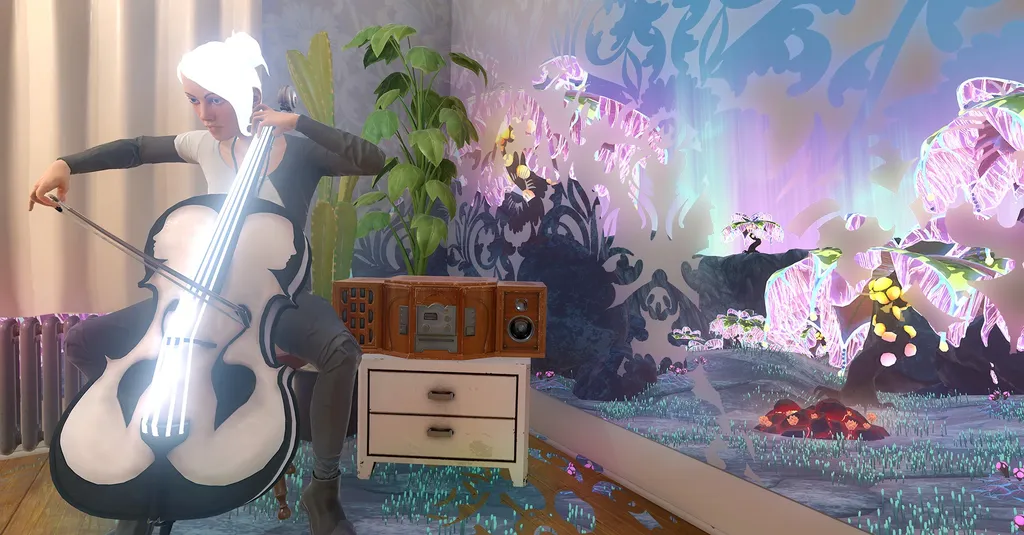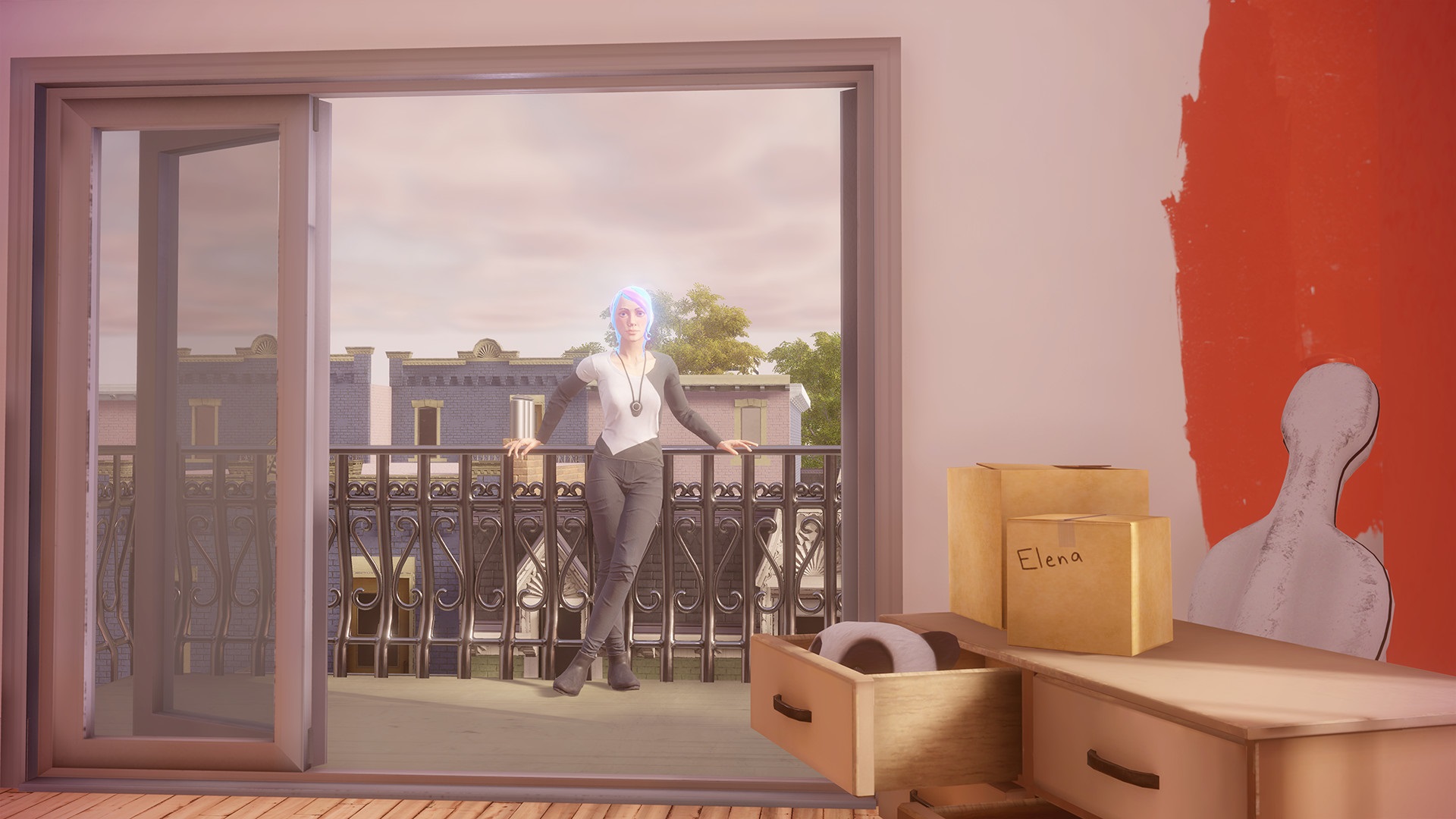Gaming is more open than ever, and that’s an amazing thing. Slowly but surely we’re seeing a much more diverse, vibrant industry emerge, one that thrives on the joys of our differences but also one that isn’t afraid to tackle tough subjects that we all face, like mental health. Some games, like this week’s stunning VR port of Hellblade, navigate this tricky territory with aplomb. Anamorphine, though, isn’t able to tackle it with the same eloquence.
Developer Artifact 5 is clearly speaking from the heart with this distressing tale of a couple that succumbs to depression following a tragic accident. And, through striking imagery and inventive design, the team does find some interesting ways to talk about these struggles. But a handful of missteps leave Anamorphine feeling cold, misguided and ultimately even a little irresponsible.
Other than movement and gaze-based interactions you’re simply a spectator in Anamorphine. You follow protagonist Tyler and his wife Elena as they struggle to come to terms with an incident that leaves the latter unable to play her cello, clearly a strong source of her livelihood. There isn’t a single spoken word; you move through Tyler’s increasingly distorted memories on what very much feels like a descent into the very recesses of mental anguish.
Artifact 5 mines the topic for some memorable and disturbing moments. The workmanlike halls of the hospital in which Elena rests stretch on like an increasingly frustrating maze, while some sequences have you endlessly walking through the couple’s apartment to hammer home the vicious cycle that poor mental health can lock you in. Flies fester, garbage piles up, lights drip and the wind howls. It’s literally stepping into the state of someone at their lowest.
Recurrence is, ironically, a recurrent theme within the game itself and perhaps a little too much at times. Some sequences stretch on a little too long without having much to say, and what impact they can make is diminished by frequent returns. This is a story that’s at its best when it encapsulates the strain of depression in ways that only gaming can express, by literally transporting you into someone’s mind and playing with the supernatural, so it’s a shame the ideas can’t stay fresh even for 60 minutes.
That said, there are moments that will stay with me, more for how cleverly that define the difficult juggling act of staying positive. At one point the music that Elena thrived upon appears to completely swallow her whole, which Tyler’s struggle with alcoholism is brought to life in one particularly visceral scene. Earlier moments in the game have happier sequences too, like exploring a world Elena builds with her music.
One of Anamorphine biggest missteps, though, is with its ending. Without spoiling anything, it’s important to note there are two possible conclusions to the game, and it’s very easy to miss the action needed to achieve the ‘good’ ending. I did the first time and, as a result, the game really rubbed me the wrong way. It simply didn’t have an ascent to lighten its at times crushing weight. Of course, for some there really isn’t much that can lighten that load, but in stretching out its exhibition of depression and leaving you in the same place it started, it feels somewhat exploitative. When the credits unexpectedly start to roll I was simply left wondering why I had been taken on a journey that had simply stretched out a message it made clear in its first third.
There’s definitely a point to be made about neglect and the need to accept help here, but the inclusion of a ‘bad’ ending, especially one that people could easily take as the only conclusion, is the game’s biggest blunder. It betrays its otherwise delicate handling of the subject matter and left me feeling far colder than may have been intended.
I also have to stress that the game simply shouldn’t be played in VR, as it’s lacking proper optimization. While the really rooting yourself in the experience can be compelling, the basic gamepad controls require you not to move your body when playing, and I couldn’t get Touch controls to work at all. Most importantly, though, many of the game’s transitions are jarring and uncomfortable, completely taking you out of the experience. Even on a flat screen there are bugs and kinks to iron out, but the VR implementation simply left me hazy, and not in the intentional sense.
One fatal foot wrong meant that Anamorphine made a strong impact on me for the wrong reasons. While it has some interesting ideas on how to present mental suffering, the innocent act of overlooking one crucial moment meant it ultimately failed to justify its tour of misery and left me with too sour a taste. By the time I discovered there was a sunnier conclusion out there, the damage had been done. That, coupled with the poor VR optimization, make it hard to recommend to anyone with an interest in its subject matter and I would advise people suffering from depression to actively avoid its troubling depictions. There may be some that applaud this unflinching approach to an impossible situation, but a lighter touch may have been the better approach.
Anamorphine is available now on Oculus Rift and HTC Vive for $19.99. A PSVR version is also in development. Read our Game Review Guidelines for more information on how we arrived at this score.



























